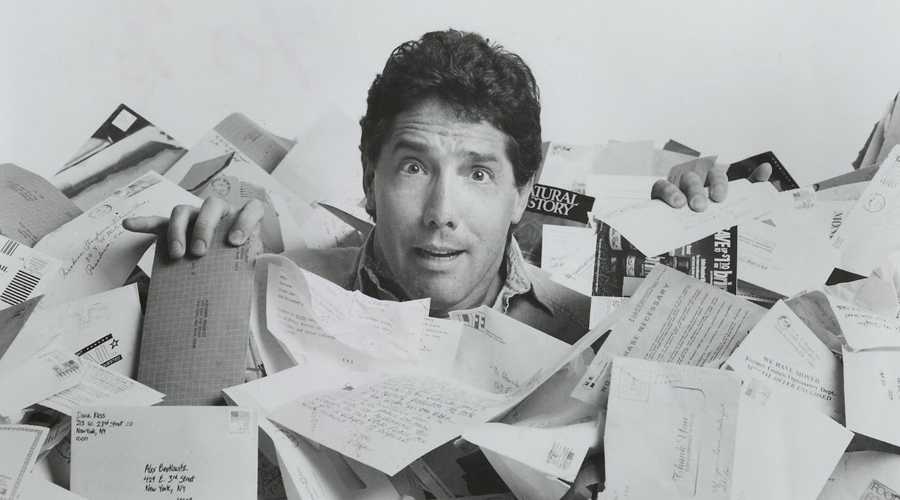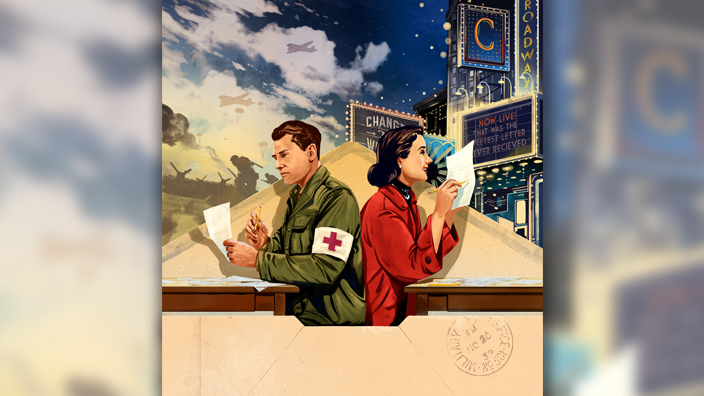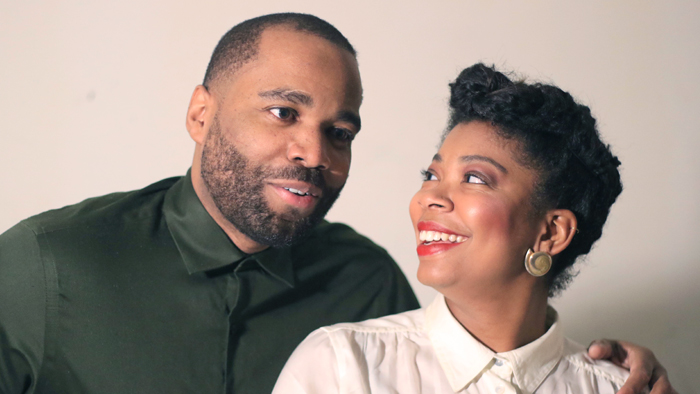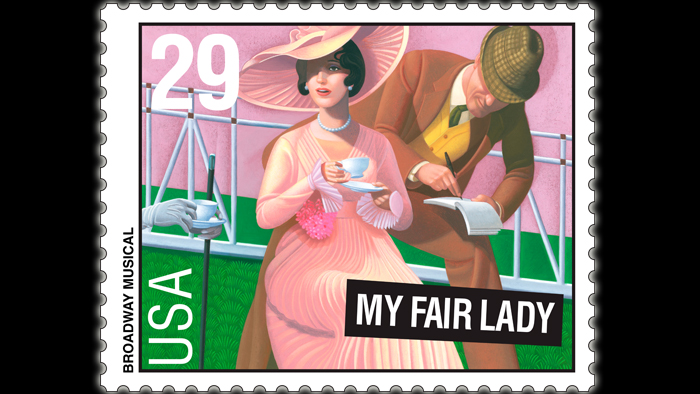If you’ve enjoyed “Hamilton,” this summer’s stage-turned-streaming blockbuster, you’ve probably thought, “Gee, why should the Department of the Treasury have all the fun? Where’s a Postal Service-loving Broadway musical?”
Aha! Don’t you remember “Mail”?
It’s OK, it’s been a while. You know, like, 32-years-a-while. And it ran for a month.
Still!
“Mail” represents the highest-profile, highest-concept effort to date to enshrine the legacy of the Postal Service on Broadway.
(We might give runner-up to 1964’s tuneful “Ben Franklin in Paris,” which lasted six months before shuttering, but that’s a story for another day.)
Enjoy a #PostalProud history lesson, folks; this is the tale of “Mail.”
It opened near the end of the 1987-88 season, which brought a slew of attention-grabbing events to the Great White Way:
The chandelier of “The Phantom of the Opera” — now the longest-running show in Broadway history — crashed for the first time.
Stephen Sondheim fans blazed a path to the fractured fairy-tale realm of “Into the Woods.”
Madonna turned heads when she made her Broadway debut in the David Mamet satire “Speed-the-Plow.”
And a big-budget bloody mess of a musical version of Stephen King’s “Carrie” imploded in a matter of days.
In a season like that, did a relatively modest musical devoted to the importance of mail ever really have a chance to stand out?
“Mail” focused on Alex, a struggling writer who melts down and disappears for several months. He comes home to his Manhattan apartment to find piles of correspondence he’s missed — from love letters to a sweepstakes entry to his electric bills (and inevitable shut-off notice) — which proceeds to come to life as he reads through the backlog.
Can you picture singing and dancing Con Edison utility workers emerging from Alex’s refrigerator to perform a number called “We’re Gonna Turn Off Your Juice”?
Then you can picture “Mail.”
Chief among its believers was its composer, Michael Rupert, who also starred as Alex.
A Tony Award winner in acting for the 1986 revival of “Sweet Charity” and a nominee for the landmark 1992 LGBT-themed musical “Falsettos” (as well as for his 1968 Broadway debut at age 17 in “The Happy Time”), Rupert teamed up with playwright Jerry Colker to create the show.
The duo had already collaborated on a 1985 off-Broadway hit, “Three Guys Naked From the Waist Down,” a fully clothed musical about stand-up comics.
Rupert credits Colker with conceiving a show about mail, in an era when it was crucial to everyday communication.
“There was a time when you got letters with a stamp on them,” Rupert said. “These letters literally had character — whether from a friend, a lover, a spouse or a relative,” and that’s the spirit the pair sought to convey onstage.
“Mail” opened to strong sales and favorable reviews in the Los Angeles area at the Pasadena Playhouse. The Kennedy Center soon signed on as a producer, leading to a pre-Broadway run at the Eisenhower Theater in Washington, DC, before “Mail” moved to the Music Box Theatre in New York City.
There was even an opening-night party at — where else? — a Post Office on Manhattan’s East Side.
“It was an interesting show and journey,” Rupert said. “It was a huge success in Los Angeles. Terrific reviews. We sold tickets hand over fist. But critics were unkind in Washington and New York, and we couldn’t afford to run long enough to build the word of mouth we needed.”
Rupert calls “Mail” “a product of its own moment in history. Talk about a period piece.” (Written today, he ponders, it would be called what, “Email”? “Text”?)
Although the kinds of personal missives that inspired “Mail” may be less prevalent today, Rupert is quick to recognize the vital role of USPS in the life of the nation.
“Mail cannot go away,” he said. “It’s important. It has to be saved. We all have to do our part. It’s incredibly important that everyone support the Postal Service.”
And while “Mail” may not have been a “Phantom of the Opera”-scale hit (nor, thankfully, was it a “Carrie”-scale flop), it lives on in its own way: Broadway video snippets here, a Kennedy Center live recording there, not to mention licensing options for amateur and professional productions.
“Every once in a while, people will stop me and say they saw ‘Mail,’” Rupert said. “Even all these years later, some people remember.”
Nowadays, the 68-year-old retiree occasionally works with college drama students, coaching and directing them, and delighting in their displays of “the same awe of theater I had starting out years ago.”
He also sees fear and uncertainty, as a new generation prepares for careers in an industry, live performance, that’s in a state of suspension due to the coronavirus pandemic.
But just as Rupert believes in the future of the Postal Service, he’s hopeful, too, that theater — on Broadway and beyond — will soon find its way forward.
After all, the show, like the mail, must go on.
Share your feedback at uspslink@usps.gov. Your comments could be included in the “Mailbag” column.



